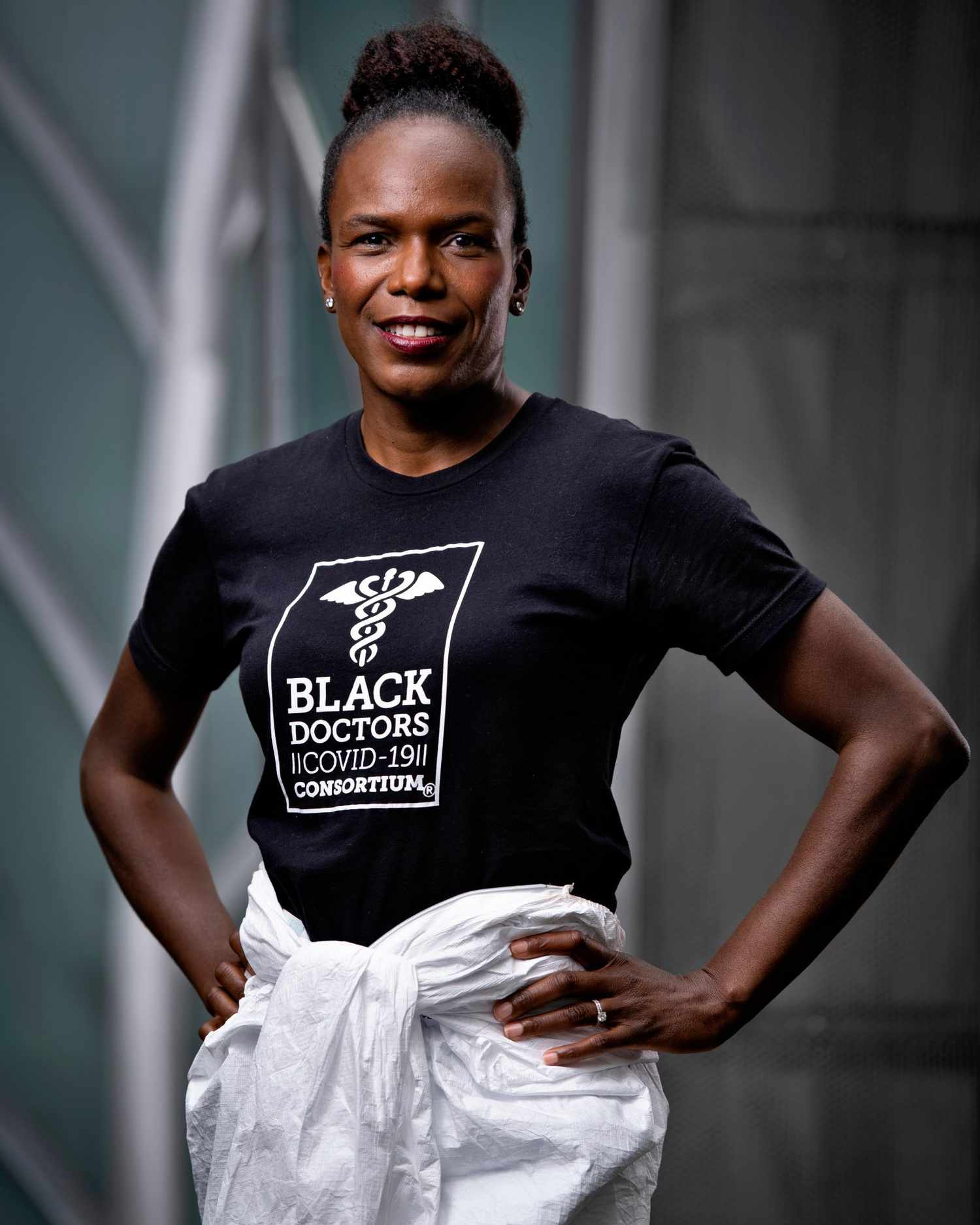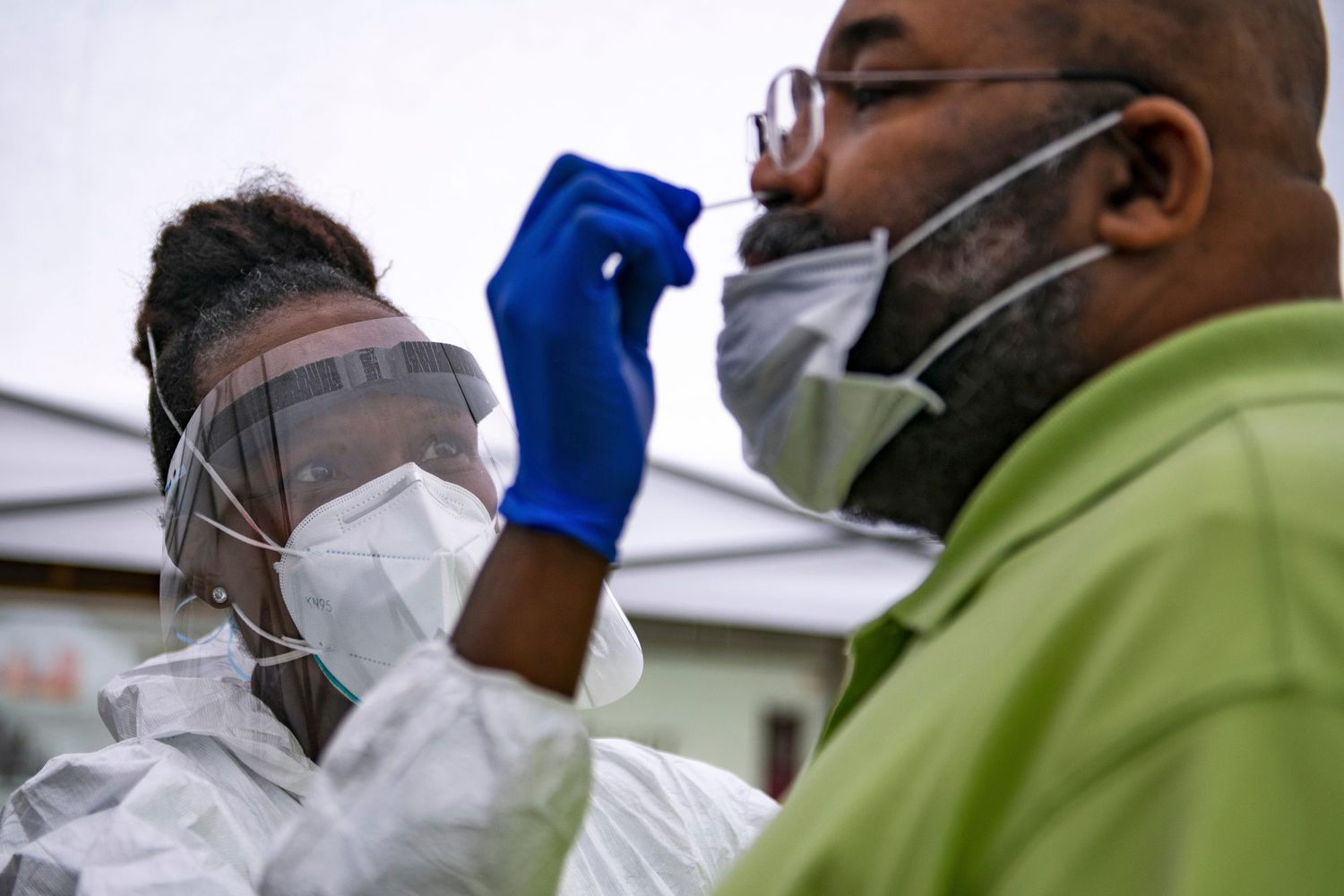Philly Surgeon Delivers COVID Tests, Vaccines and Compassionate Care to the Black Community

Before the pandemic, life for Philadelphia doctor Ala Stanford was going nonstop. She was busy managing her career as an in-demand pediatric surgeon and personal doctor with her home life as a mom to three young boys.
So at first, the quiet that came with the COVID lockdown last March felt like a blessing in disguise: a rare chance to cozy up at home in PJs with her accountant husband, Byron Drayton, 56, and her boys Ellison, 12, and twins Langston and Robeson, 10. "Then we started hearing the reports about people dying," Stanford, 50, tells PEOPLE in this week's issue. So many of the faces of those lost to COVID, she recalls, were Black and brown — a population with COVID death rates twice as high as white Americans. "That's what made me pause."
After hearing from her own friends and neighbors who were turned away for COVID tests because they didn't have a primary doctor, or because they didn't have a car and tried to walk up to a drive-through-only testing site, Stanford realized that she couldn't sit comfortably at home knowing her community needed help. "There was just barrier on top of barrier to getting tested," she says. "And I could do something about it."
Stanford reached out to her patients online, then she and her husband filled a rental van with PPE and testing kits and drove door-to-door in Philadelphia offering tests. A day later, they changed their approach to setting up pop-up clinics in the parking lots of Black community churches, "a trusted entity in the community," Stanford says, and by the end of their first week, she had recruited some help and formed the Black Doctors COVID-19 Consortium, a name she chose deliberately. "I was trying to connote trust," she says. "We were going into Black neighborhoods and I wanted people to know that we as Black doctors were coming to help you."
For more on Dr. Ala Stanford, pick up a copy of PEOPLE, on newsstands Friday

Some of those who showed up to the clinics told Stanford they came because they were curious – they had never met a Black doctor before. "She is extremely dedicated to the betterment of the Black community," says Shelah McMillan, a nurse who works with Stanford as the supervisor for the consortium. "She is one of the most compassionate, loving, caring souls that I know."
Soon the Black Doctors COVID-19 Consortium was testing 400 people per day — and as many as 900 on busy days — all for free. "The test was $150 and people were dying because they couldn't get it. They were going to work, taking the bus, taking the subway, spreading it like wildfire," Stanford says. "It was unfathomable to me that someone could lose their life for something you'd pay for a nice dinner for two people."
A Philly native and the daughter of teen parents (her mom was 14 and her dad 17 when she was born), Stanford grew up on public assistance and understands what it's like to live on the financial edge, so she was committed to keeping testing free. But without the government support and grants that came later, that meant Stanford, who had already founded It Takes Philly a non-profit for at-risk youth, began funding the effort from her savings — spending somewhere between $50,000 and $100,000 of her own money, she estimates. "I grew up busted, broke and poor," Stanford says. "But now, I'm fairly comfortable and I decided to use what I had earned to do this."
In January, the group began offering vaccinations as well as testing. "There was joy. It was a full-circle moment," Stanford says. "So many people at the beginning were like, 'No way, I'm not taking a vaccine. No way, no how.' But then they were like, 'Doc, when you tell me it's okay, I'll take it.'" So far, the group has tested more than 23,000 and vaccinated more than 10,000.
Related Video: CNN Reporter Breaks Down in Tears Over COVID Deaths on Live TV
One patient in particular stands out, Stanford says. "We had a woman who emailed me the night before and said, 'My mom died from COVID tonight, can I come get a vaccine?' She came and the entire time, she sat in her chair, she just wept and wept," Stanford recalls. "We put a circle around her, and we talked to her, and we prayed with her, and we gave her the vaccine. Sometimes you don't stay composed. Sometimes you cry with people."
That empathy, Stanford says, is central to the mission of the Black Doctors consortium: "So often people of color feel dismissed when they go to the doctor, so the moment they come to us is very intimate. We want them to know that we care and can answer any questions they might have."
Since she began her mission, Stanford has been pulling long days, "I keep saying to my boys, 'You have to share mommy a little bit right now.' " And her family has been pitching in too — her sons have helped with paperwork during testing clinics. But she feels fulfilled in her work and inspired for the future. "My plan is to build a health advocacy and health equity center," she says of life after COVID. "I already see it, I see the neighborhood, the location, where we provide educational services, where we also see patients medically and give second opinions. A place where— God forbid this ever happens again — we'll have our own edifice." And it will be a place, she says, where every patient will be treated with respect.
You can help by donating to the Black Doctors COVID-19 Consortium.
Source: Read Full Article
